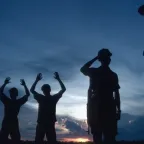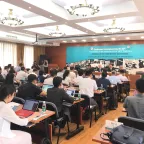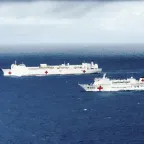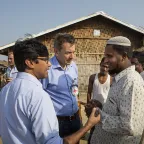China: Forty years anniversary of Additional Protocols – a grand gathering of IHL experts
Mr Pierre Dorbes, head of the ICRC’s regional delegation for East Asia, Professor Chen Zexian, director-general, Institute of International Law, CASS, and Mr Larry Maybee, regional legal adviser, …






